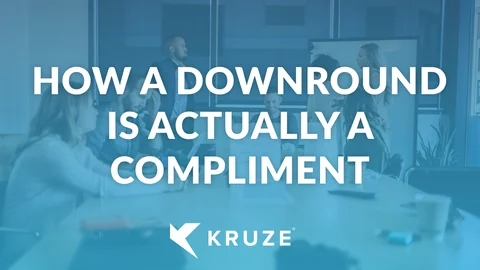
Obviously, no one wants to do a downround. It means you raised money at a valuation that was too high, and you didn’t execute your promises as well as you said you would. You probably have some very angry venture capitalists and some not-so-happy team members also. But stay with us here, because only the good companies, the promising companies, can get a downround out of that situation.
A Downround Means You’re Doing Something Right
To understand why this is the case, you have to look at the way venture capitalists think. They are not going to support companies that they know are going to die. They’re not going to throw good money after bad, as it were.
Therefore, if you are one of the few companies that receive a downround, it means you must be doing a lot right. It shows that your VCs are committed to you and your vision. What it really indicates is that you just have a cap table and valuation problem, but you are probably on the right track with your business.
Venture Capitalists Don’t Want to Do Downrounds
Venture capitalists really don’t want to do downrounds and there will be a really high bar that a startup must meet for a VC partnership to internally recommend doing one, and then going through with it. For a VC, the keys issues with doing a downround include:
- Legal headaches.
- Financial headaches.
- Pay-to-plays in which not only the VCs have to participate, but the rest of the board/investor syndicate also need to be involved.
There’s simply so much damage control that comes with a downround that only good companies are actually going to get one.
Staying Positive During a Downround
If you are having a downround happen to your startup right now, it’s easy to become depressed, sad, or upset over what could have been. You were a unicorn and now you’re not a unicorn anymore. But on the bright side, like we said, most venture capitalists don’t want to do that downround. If you’re actually getting one, you still have a promising company and you can most likely fix the biggest problem within the company, which will be the valuation of the cap table.
Success After the Downround
The best part is, once you do that and you’ve fixed your cap table, no one’s going to remember. If you are successful and you reach an IPO, everyone will instead be talking about how you were a genius who piloted the company through rough seas, how your board stuck with you, and how now you’ve won the game by doing an IPO. So stay positive, because only the best of the companies that are overvalued are ever going to achieve that!
If you have any other questions on downrounds, valuations, startup investing, startup accounting, taxes, or venture capital, please contact us.
You can also follow our YouTube channel and our blog for information about accounting, finance, HR, and taxes for startups!











